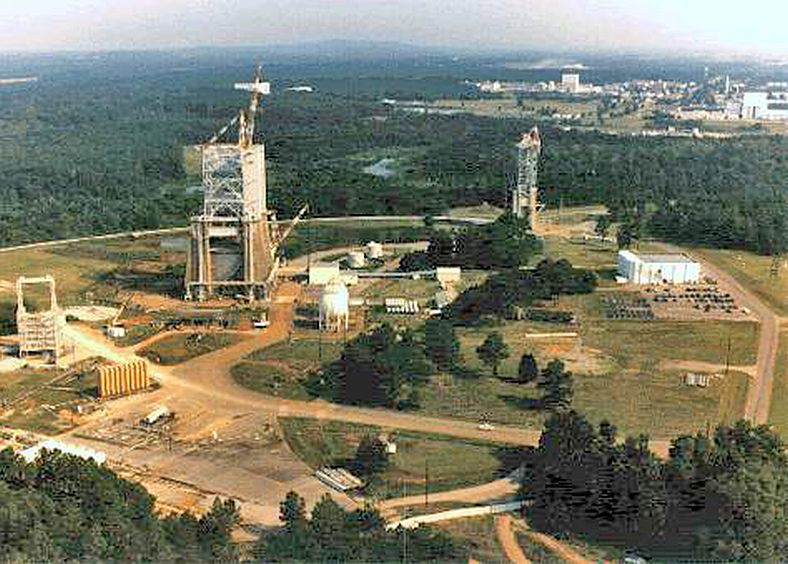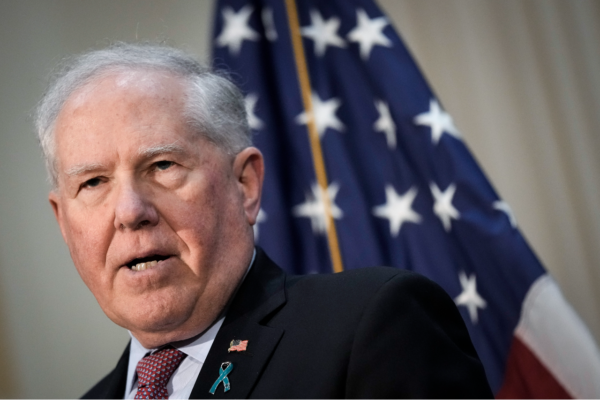


A measure within the proposed Fiscal Year 2024 (FY24) defense budget grounds U.S. Air Force Secretary Frank Kendall until he issues an oft-delayed, politically fraught decision on moving the newly-created Space Force’s headquarters from Colorado to Alabama.
The stipulation was placed within the draft $874.2 billion National Defense Authorization Act (NDAA) by House Armed Services Committee Rep. Mike Rogers (R-Ala.).
The preliminary $8.6 billion Space Force spending plan also prohibits Space Command from spending any money on improving its current headquarters at Peterson Air Force Base near Colorado Springs, Colorado, and calls for the establishment of a Space National Guard.
The 412-page FY24 NDAA goes before the 59-member House Armed Services Committee on June 21, kicking off a summer of hearings. The Senate is debating its own version of the NDAA, which ideally will be adopted before the new fiscal year begins Oct. 1.
Six House Armed Services Committee subpanels swiftly and unanimously on June 13 preliminarily endorsed their components of the spending plan, reshuffling to varying degrees budget requests by the five elder military branches—Army, Navy, Air Force, Marine Corps, and Coast Guard—as well as the Space Force, which was created in 2019.
According to the Air Force Times, the Space Force consists of 4,286 enlisted and 4,314 officers, making it by far the smallest branch of the military and the only one where officers outnumber enlisted.
Until it “grows into its mission” over time, the Space Force remains attached to the Air Force, similar to the way the Marine Corps is independent but a component of the Navy.
In addressing Space Force spending, the proposed NDAA outlines $3.752 billion in procurements, $60 million less than what it requested, and $4.866 billion in operating and maintenance expenses, $32 million more than its budget request called for.
The proposed budget halts Space Force from issuing a contract for procurement of the Wideband Global Satcom-12 (WGS-12) satellite Congress approved in 2023 until it can verify that commercial satellite providers could not perform the same functions.
The proposed NDAA requires Space Force to “maximize competition in the acquisition strategy for the National Security Space Launch,” a program it says should “provide opportunities for emerging launch providers while also assuring access to proven launch capabilities for low-risk tolerant payloads.”
The draft NDAA also calls for freezing 90 percent of Kendall’s travel funds and any spending to sustain his administrative offices at Peterson Air Force base “until the Secretary of the Air Force delivers a report on the selection of a permanent location.”
During the waning days of the Trump administration, the Air Force selected the Army’s Redstone Arsenal in Huntsville, Alabama, as its preferred site for Space Command’s permanent headquarters.
The command is projected to generate 1,400 jobs and draw millions in industry investment.
After that January 2021 announcement, Colorado’s congressional delegation criticized the evaluation process and aggressively lobbied for reconsideration, convincing the Air Force to do so.
In May 2022, a Department of Defense (DOD) Inspector General analysis agreed the evaluation process was flawed, but that siting the command in Huntsville was “reasonable.”
In June 2022, a Government Accountability Office report said the decision to move the command from Colorado to Alabama featured “significant shortfalls in its transparency and credibility” but did not compare Colorado Springs and Huntsville.
In February 2023, Sen. Michael Bennet (D-Colo.), in a Senate floor speech, criticized the decision to move the headquarters, which he said would cause upheaval in the newly created military branch and distract from addressing the militarization of space by China and Russia.
Bennet’s lobbying to keep the command headquarters in his state was countered by Sen. Tommy Tuberville’s (R-Ala.), who claimed that the decision to delay the move is politically motivated and “a case of sore loser syndrome.”
One factor affecting the decision, both Bennet and Tuberville maintain from polar perspectives, but the Air Force has never acknowledged, was the June 2022 Supreme Court repeal of Roe v. Wade, returning abortion regulation to the states. Access to abortion is unrestricted in Colorado and illegal, with limited exceptions in Alabama.
The Air Force maintained it froze the move until environmental analyses were completed. Those were finished in September 2022. In March, Kendall said “additional analysis” related to “financial modeling” was necessary.
Creating a Space National Guard has been bantered about for several years. The Biden administration rejected the proposal in 2021, citing a White House Office of Management and Budget’s (OMB) finding that it would cost up to $500 million a year without adding any new capabilities.
National Guard leaders from all 50 states and the National Guard Association of the United States (NGAUS) disputed that determination, as did House and Senate members from states with significant aerospace and technology industries.
In February, Sens. Diane Feinstein (D-Calif.) and Marco Rubio (R.-Fla.) co-sponsored a Space National Guard Establishment Act. Reps Jason Crow (D-Colo.) and Doug Lamborn (R-Colo.), who chairs the House Armed Services Committee’s Strategic Forces Subcommittee, are co-sponsoring the House companion.
The House Armed Services Committee’s Military Personnel Subcommittee NDAA draft calls for creating a Space National Guard and funding for 800 Space Force guardsmen.
Under the proposal, Air Force Reserve specialists with specific knowledge and talents would be incorporated into Space National Guard.



